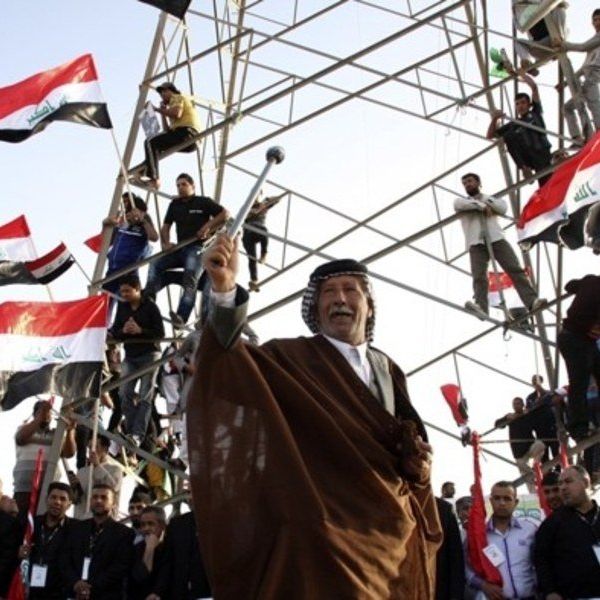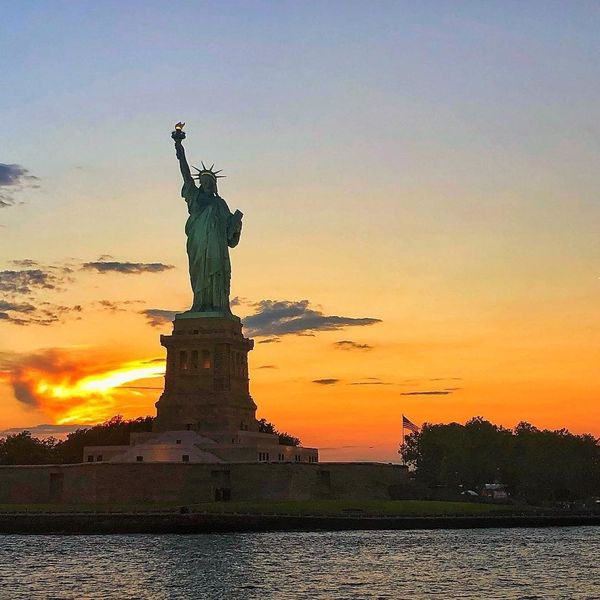In 2004, the United States military set its sights on Baghdad, Iraq, with the ultimate goal of destroying the Saddam Hussein regime and finding and destroying weapons of mass destruction. After an initial quick and very successful military campaign, which destroyed the Iraqi army and led to the destruction of the regime, many politicians and pundits around the world believed Iraq would become a “beacon of hope and democracy in the Middle-East,” as said by former President Bush. From today’s perspective, those politicians and pundits could not have been any more wrong. Iraq today is plagued with sectarian violence amongst its inhabitants, which commonly pits Muslims against Muslims. Iraq also suffers from a central government that discriminates against the minorities in its country, including Sunni Muslims, who have a strong presence in the south of the country. Iraq also suffers from the rapid advance of the terror group ISIS, who wants to control the whole country and install a radical Sharia law on all inhabitants. On top of all this, conflicts over resources, such as water and oil, create violence and disputes that continue to fuel the huge power vacuum left after the United States military left the region in early 2012. This turmoil in Iraq is a major problem for the United States today, as a weak and violent Iraq allows ISIS to continue to advance and find safe havens to plan attacks against the United States and our allies. A weak Iraq also strengthens Iran’s standing in the region, giving the “biggest state-sponsor of terrorism,” according to Senate Majority leader John Boehner, more influence and ability to create terror networks in a destabilized Iraq. All these issues make Iraq a huge foreign policy issue for the United States and so far, our country has not been able to create a stable Iraq since Saddam was toppled in 2004. Although Iraq is a very volatile region and never will be completely peaceful, the United States can do three things to make the situation in Iraq better. The United States should promote dividing the country up based on tribal and sectarian lines, they should create military bases along major waterways to ensure proper use of water and transportation, and lastly, they should promote self-determination for all people of Iraq, as to allow people to choose the tribal or sectarian region they wish to live.
After World War One, Iraq was drawn and created on a map by British and other western political leaders without any real thought of how the people in the newly created Iraq would live or function together. The country was created as a mandate by the British to help unify the people of the area after the fall of the Ottoman Empire. Unfortunately, the complete opposite of that occurred. For the next fifty years, until Saddam seized power, the people of Iraq were far from unified. Violence consistently broke out between Sunnis and Shias, between the Kurdish and Iranians, and even between social classes. The same is happening in Iraq today and the United States could help make it more stable after our disastrous pullout in 2012. To help ease these internal conflicts, the United States should promote dividing up the country into tribal regions and sectarian zones, allowing each newly formed area to create its own government and economic system. A huge problem with Iraq right now, is the fact that many Iraqis do not support the central government that currently exists in Iraq. Most Iraqis currently follow local laws and policies based on tribal and religious leaders. To enhance the power of these tribes the United States should support each of these areas forming into their own government or “mini-states,” as many people refer to them as. The United States should support that each religious group, the Kurds, Shias and Sunnis all have a portion of the state. By allowing each sectarian group to gain proportional land in the region would hopefully ease sectarian violence as well as promote unity in the lands where people reside. The Kurdish people would create a state in the north, Shias would create a state around eastern and central Iraq, Sunnis would form a country in the south, and tribal leaders and religious heads would create smaller localities and governments in the far-south and far-west of Iraq. The goal of this breakup would be to allow people to follow a government more similar to themselves as well as make smaller governments that can more easily help its constituency. The Iraqi government now has to help all different types of Iraqis and the government is backlogged with inefficiency and is also hindered by favoritism of certain people. Separate governments and states would eliminate these problems, because the government would be made up of similar people to the citizen. Another major reason dividing into smaller governments is a good idea, is the fact that these areas could create their own military and militia groups who would be more effective and have higher morale than the current Iraqi military. As proven by the Kurdish people, smaller groups fighting for their own land and cause creates a much stronger fighting force than a military made up of vastly different people, like the current Iraqi military. Smaller groups fighting for their own defense will have better morale and motive to fight against ISIS than a diverse Iraqi military would. These governments currently function now without financing or support and do a better job than the Iraqi government, and if the United States supported them they would be even more effective and help stop the violence and division in Iraq.
To ensure that the breakup of Iraq did not immediately lead to other violence and civil war, the United States should setup military bases in strategic areas along major highways, waterways, as well as in major cities like Baghdad and Mosul. The reason this is necessary is to ensure that tribal leaders and the Kurds in the north do not dam the water that flows from the north to the south which the Shias and Sunnis rely on to live and farm. The water also allows for travel and trade to be conducted and a neutral but strong force is needed to ensure that the water is not being dammed or otherwise compromised by a faction farther north than a rival group. The United States would keep the forces relatively small in the needed areas that way the United States ensures they are allowing the people in the area to feel free, but to also keep U.S. military involvement minimal in general. Bases around roadways would be there to help commerce move smoothly and allow the free movement of oil, which is nationalized for all the people in the region to reap its reward. The U.S. military would be there to ensure that oil and other goods flow freely between the newly formed mini-states that way violence at the borders can be prevented. A small military force of troops, unlike the one that invaded in 2004, would be all that is necessary to ensure peace at the borders of these new states. The troop involvement would also help the United States keep boots on the ground in case of terrorism or other attacks that the U.S. can help respond to.
Lastly, once these new states are formed, the United States should support a movement of self-determination and immigration to allow people in opposing lands to move to areas with similar people. This would allow Shias to leave Sunni majority lands so they can resettle in the newly formed Shia state and vice-versa. This idea would ensure that people, if they so wish can leave lands where they may feel unwanted or discriminated against. This idea offers a peaceful way for these people to move without feeling the need to resort to violence or to create conflict. Under the watch of United States oversight and military protection, once these new governments are running and functioning properly, people will be allowed to freely move to the area they desired to reside. This would also allow people of the different religions to move to places they can feel comfortable worshipping in because like-minded people will surround them and in the long run protect them. This idea of self-determination is how Europe formed into states after World War Two, and ultimately led to a very peaceful region. Applying that to Iraq with the help of the United States military would hopefully create a much more peaceful region that would promote diversity and coexistence rather than violence and war. If the United States wanted to truly create a more stable and resilient Iraq, they can do it by changing policy and admitting past policy has failed. If the United States can do that and acknowledge all the different people in Iraq and try to support them individually instead of conglomerate them together, there is a decent chance that Iraq could be a beacon of hope and prosperity in a region filled with the opposite.





















